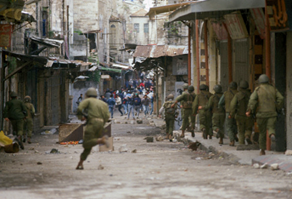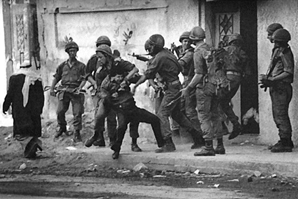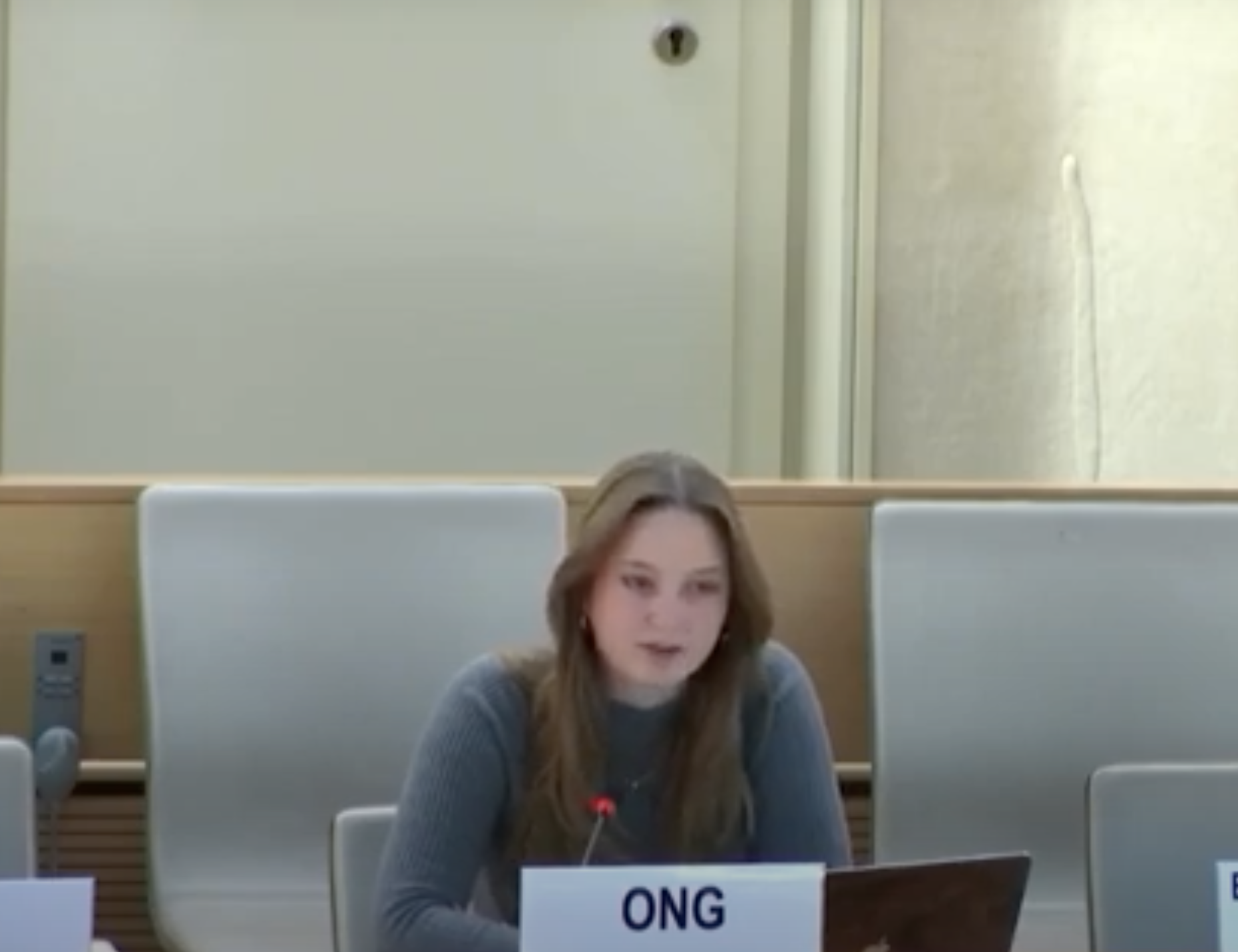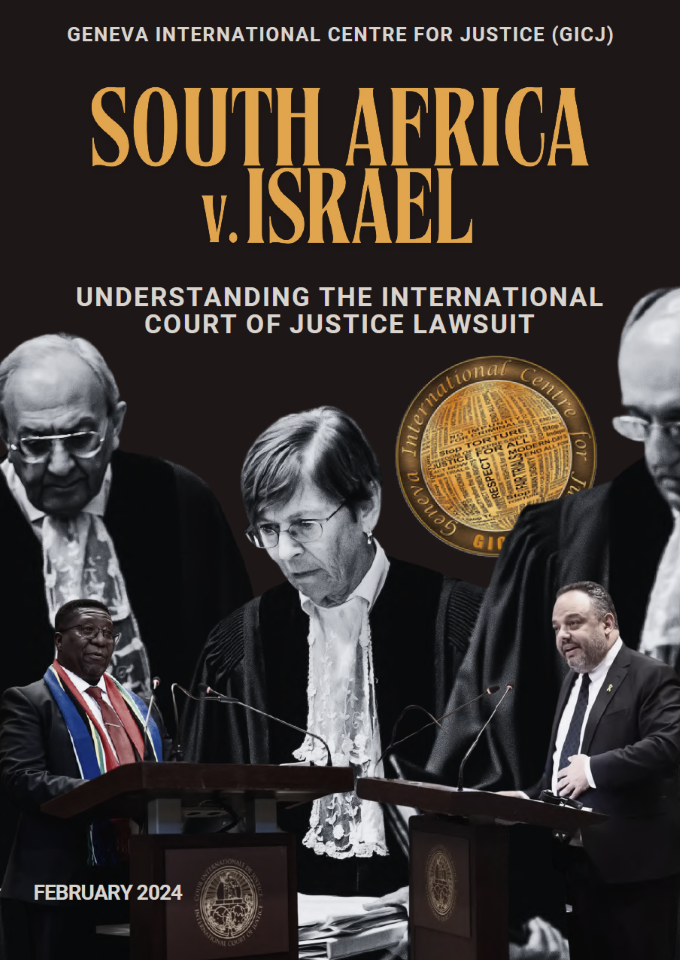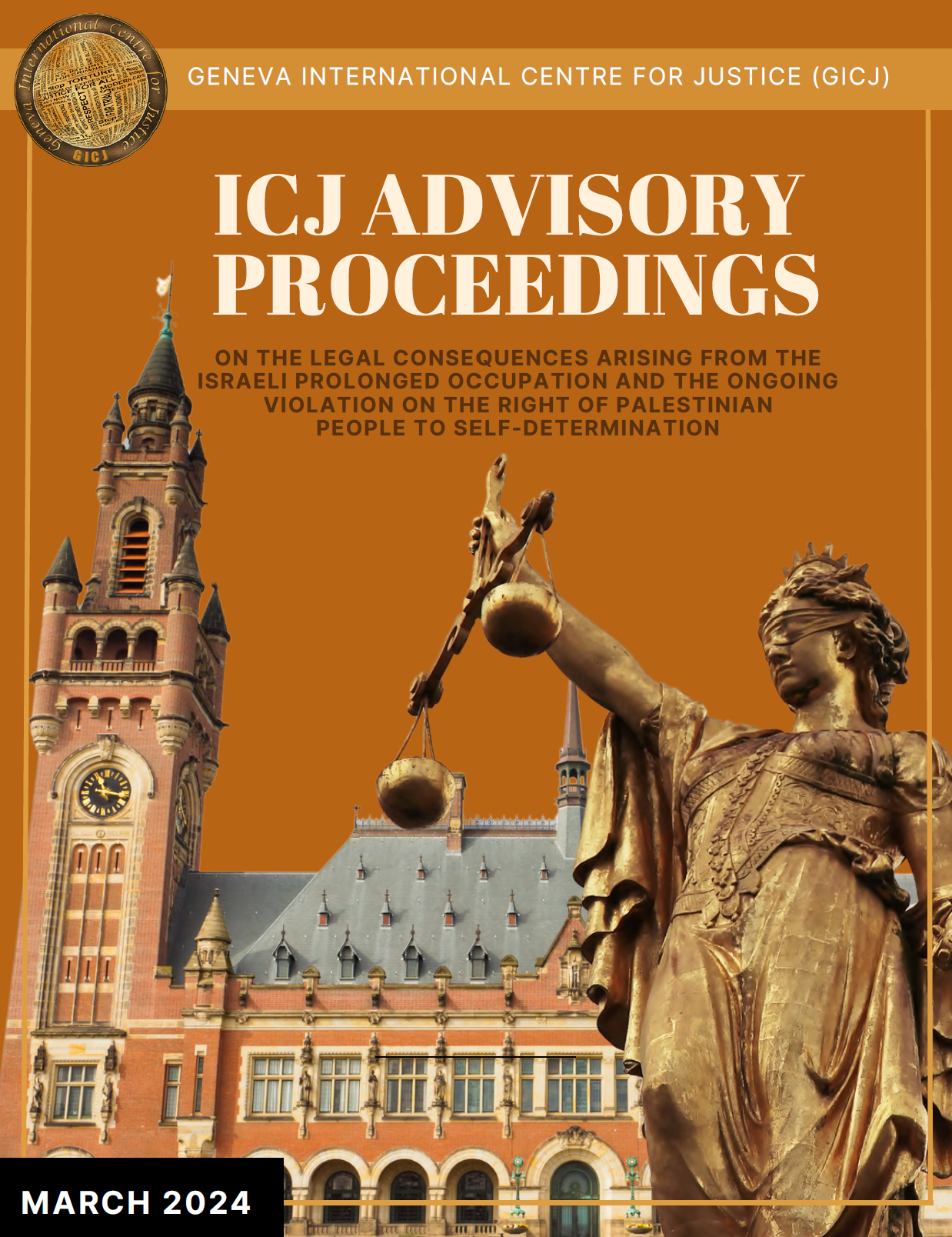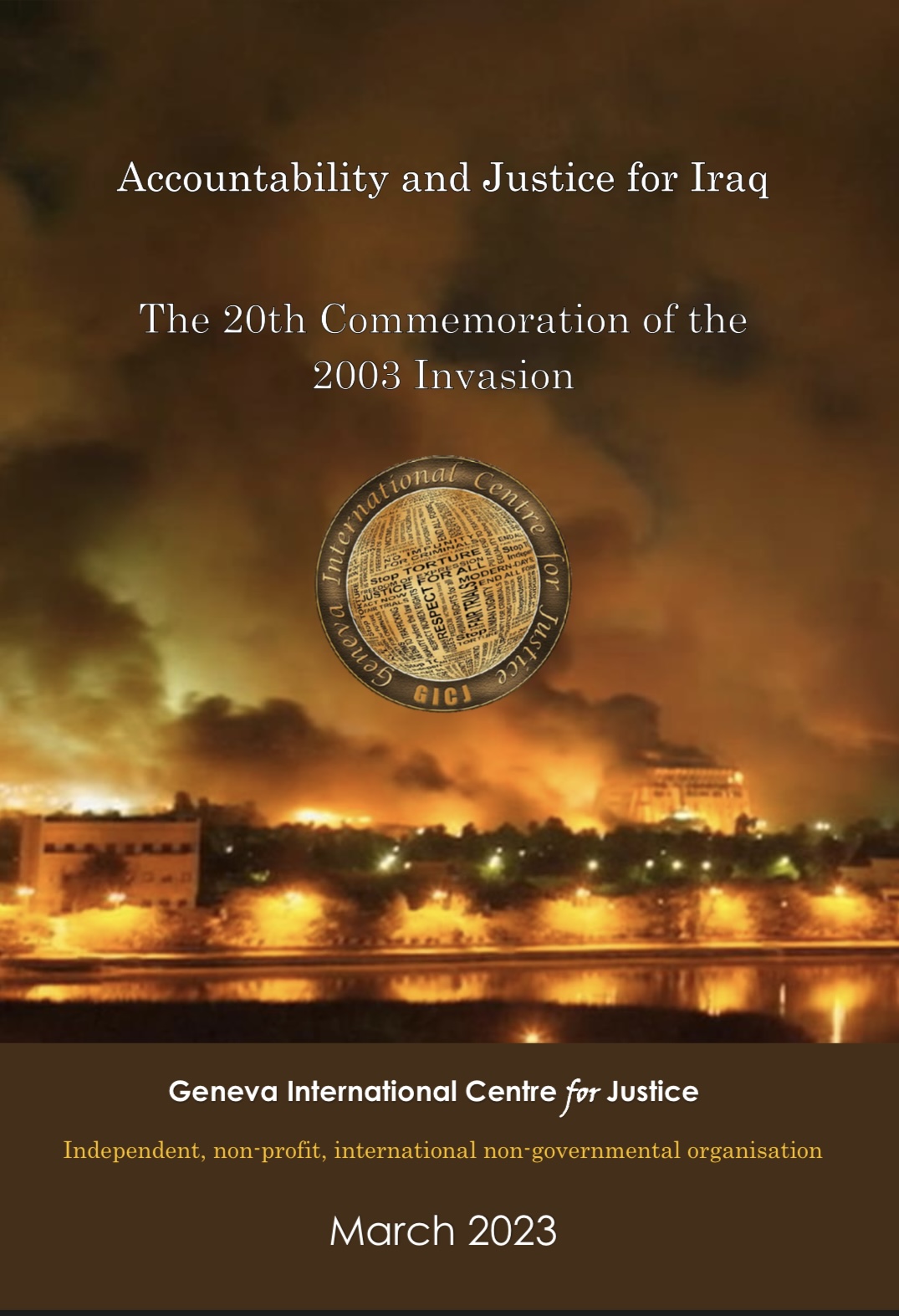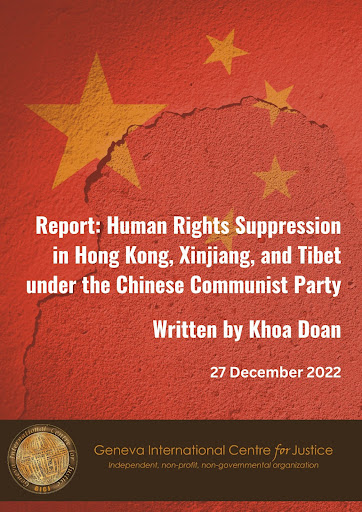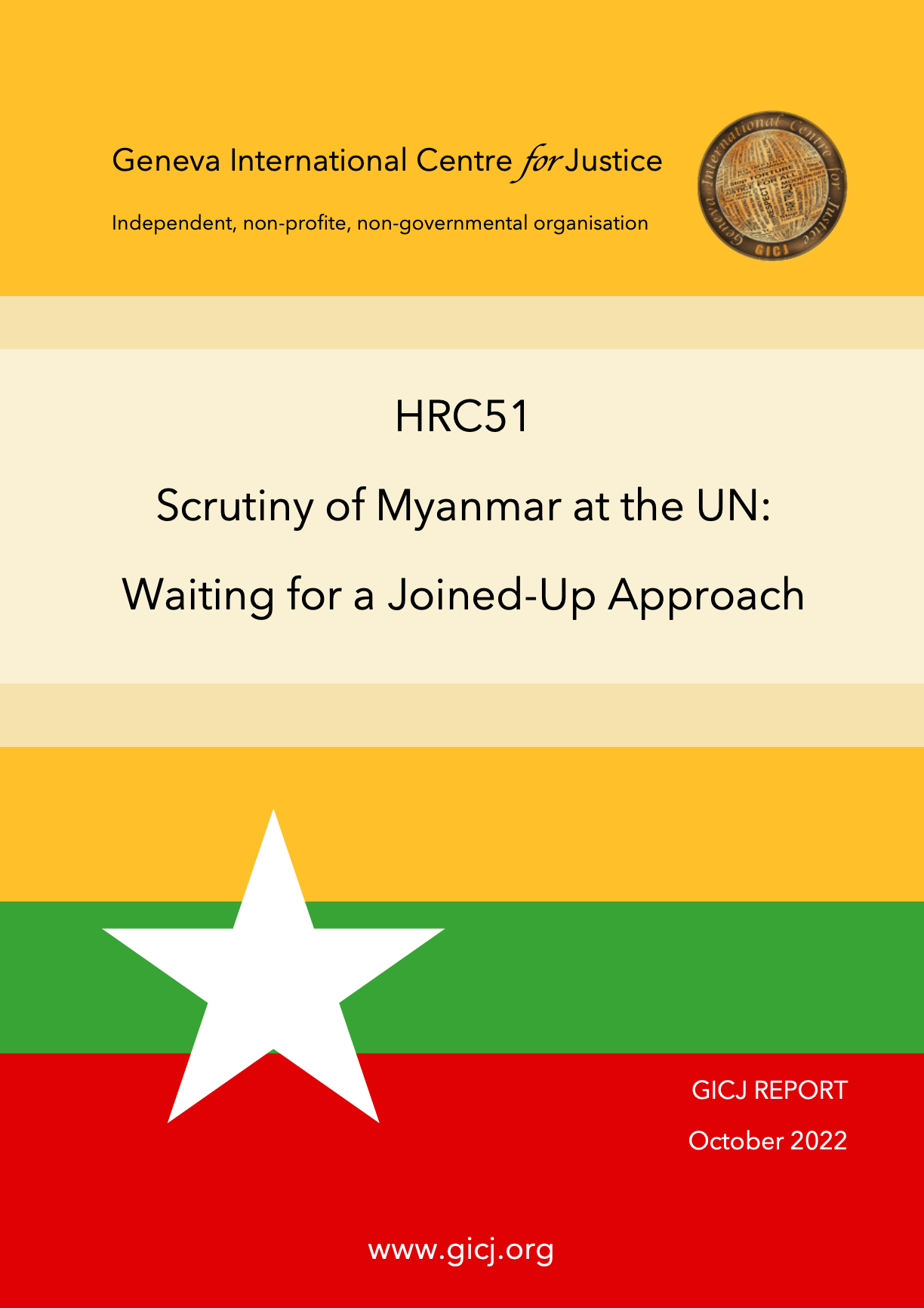In his recent report (A/HRC/34/70) dated 16 March 2017, Michael Lynk – UN Special Rapporteur on the situation of human rights in the Palestinian territories occupied since 1967 – emphasized that Palestinian, Israeli, and international human rights defenders “have experienced sophisticated interference with their vital work, and have faced toxic denunciations aimed at silencing them and discouraging their supporters”. In their tireless and intrepid work, they face attacks, arrests, detention, and threats to their lives and safety.
This report sheds light on the deteriorating conditions under which human rights defenders (HRDs) in occupied Palestine and Israel carry out their indispensable and intrepid work. Israel employs repressive methods to restrict, discredit, and criminalize their work to document and counteract the severe human rights violations associated with the Israeli occupation and illegal policies and practices in the region.
While the Israeli authorities have a long history of severely infringing on Palestinian HRDs’ freedom of expression, association and peaceful assembly, and the right to participate in public and political life, Israeli HRDs also operate in an increasingly hostile environment: They endure an antagonistic public atmosphere, are discredited and attacked by the Government of Israel, the Israeli military, hostile Israeli organizations and unknown individuals or groups, and are subjected to discriminatory legislation by the Knesset. Recently passed laws criminalize and impose drastic restriction and economic sanctions on Israeli individuals and institutions that “act against state policies” and express opposition to Israel’s policies and practices inside Israel and in occupied Palestine.
Palestinians and Israeli HRDs are thus confronted with severe restrictions, threats to security, liberty and life, and physical assault, cyber-attacks, and arrests and imprisonment under military and administrative orders in their courageous struggle against a system of occupation, apartheid and oppression.

A Ta’ayush activist records Israeli soldiers who prevent Ta’ayush from rebuilding a demolished Palestinian road. [Photo by Amir Bitan]
Criminalizing Peaceful Exercise of Rights
Human rights defenders are persecuted by Israel as “enemies of the State” for their peaceful exercise of their rights to freedom of expression and assembly. In the presence of GICJ, the Hebron Human Rights Defenders organized a peaceful demonstration in Hebron on 20 February 2016 for the end of settlements and the occupation of Palestine, which was joined by Israeli and international activists. The demonstration had further purposes: to commemorate the Ibrahimi Mosque Massacre, to oppose the blockade of Shuhada Street to Palestinians, and to demand to free Palestinian journalist Muhammad Al-Qiq who was on hunger strike to object his administrative detention.
Among chants of slogans, the Palestinian, Israeli and international demonstrators started walking down Shuhada Street towards H1, the area of Hebron officially under the control of the Palestinian Authority. Palestinians are unjustly prohibited from entering Shuhada Street since the Ibrahimi Mosque Massacre in 1994, in which an Israeli settler murdered 29 Palestinians at the mosque, while illegal settlers inhabit the place. Numerous Palestinian locals left their houses and shops to march with them.
As the demonstrators reached H1, an Israeli soldier was standing on a military post, pointing his gun into the crowd. The protestors were now protesting in front of the settlements, which were separated from them by a large metal fence and barbed wire behind which the Israeli military was positioned. Amidst the protest chants, loud clangs resounded from behind the fence. Suddenly, heavily armed soldiers broke through the metal gate and stormed out. A racket of bombs and gun shots targeted the protestors, who started running to all sides. Behind them, explosions of tear gas left clouds of dust that burnt their eyes and made them cough and gasp for air.

The Israeli military violently disperses the peaceful protest, firing stun grenades, tear gas, and live ammunition.
Hebronite activist Abdul Al-Karim shouted that the protestors must not stop running because the soldiers were following them and kept shooting stun grenades, tear gas, and live ammunition. Amidst explosions and screams, people closed down their shops and started running for protection around street corners and across pathways. When they had gained some distance and the shootings resounded farther away, they stopped, panting, coughing.
• Abdul Al-Karim: They blew right next to our feet.
• Old man: The occupation. The occupation.
After a while, Abdul Al-Karim added: “This is what the occupation does to you. You cannot even demonstrate in your own town”. The Israeli State has a long history of severely infringing on Palestinian freedom of expression, association and peaceful assembly, and the right to participate in public and political life across historic Palestine by, inter alia, closing down institutions, violently dispersing peaceful protests, and arresting human rights defenders, in an apparent effort to stifle Palestinian national expression and resistance to the occupation.
Already in the 1980s, reports on the violent dispersal of Palestinian demonstrations and protests on part of the Israeli occupying forces were numerous (see A/35/281, 1980; A/37/35; 1982; A/40/35, 1985; A/42/35, 1987). Israeli troops employed armed force, effecting the killing and injuring of unarmed civilians, including children. These measures aimed at curtailing “popular sentiment and activities in opposition to the occupation and in support of [the Palestinian Liberation Organization]” (A/42/35, 1987). Palestinian cultural and social institutions, including relief organizations have repeatedly been closed and popular committees outlawed, while their members were arrested (A/43/35, 1988). In 1989, the Israeli authorities resorted to increasingly harsh measures to quell Palestinian unrest (A/44/35). During the intifadas, Israel exacerbated the imposition of restriction on civil liberties by, inter alia, censoring Arabic-language publications, closing newspapers and educational, cultural, and other institutions and arresting their representatives (see CEIRPP, 1997).
|
19 February 1988, Nablus, West Bank. Fully equipped Israeli soldiers storm into the streets of Nablus during the first intifada towards stone-throwing Palestinian demonstrators during a protest after the Friday Prayer. |
Israeli forces occupy Palestinian neighborhoods in Gaza during the first intifada, detaining and harassing passers-by thought to have participated in protests. |
Israel furthermore restricted or forbade religious, cultural and political gatherings and other peaceful assembly. In 1980, for instance, the Israeli Military Governor General prohibited the May Day celebration in Gaza and Hebron, while police raided the celebration in East Jerusalem, attacking those present and arresting many (A/35/425). Similar measures were reported with regards to the 1985 Land Day demonstrations and strikes in the West Bank and Gaza (A/40/35).
Tariq Hathaleen, as well as other Palestinian activists in the South Hebron Hills, regularly initiate and participate in protests and direct action against the practices and policies of the Occupying Power in Um Al-Khair and the surrounding villages. Faced with the Israeli occupation, they mobilize for nonviolent resistance, solidarity and support among the different village communities. However they are often met with violence by Israeli forces. Tariq told GICJ:
“Last Friday [on 9 December 2016] my uncle and I went to protest and the army attacked us violently. They beat my uncle and when I started filming, the army called me to come and to delete the videos. Immediately I ran back to my home. Soon afterwards, they came to my village to look for me. When I saw them approaching, I escaped from my village and ran seven kilometers to be safe. However, they kept searching in the village and when they did not find me, they arrested all the youth in my village and took them to the settlement nearby. The youth had to stay there for two hours while the army checked their IDs. In that night I slept outside the village to be in safety.”

Israeli border police treating Tariq’s uncle with violence as he protests against the demolition of his house.
[April 2016]
By simply trying to document the acts of the occupying forces, Tariq put himself in danger of being arrested. This is facilitated by Israel’s imposition of a repressive military regime on Palestinians that contrasts with the domestic civil and criminal law applied to Israeli settlers illegally present in occupied Palestine – which testifies to Israel’s entrenched system of apartheid.
Arrests under Military Orders
The order regulating freedom of expression, association and peaceful assembly in occupied Palestine is Military Order 101, passed in 1967, which criminalizes peaceful political expression and activity, such as any public or private assembly, vigil, procession, or publication relating to “a political matter or one liable to be interpreted as political”, when unauthorized by an Israeli commander. Any breach of the order is subject to punishment of up to 10 years imprisonment or a fine. Exploiting the vague provisions entailed in Military Order 1651 and the 2005 Internment of Unlawful Combatants Law, the Israeli Government intensified its campaign of silencing dissent in occupied Palestine by subjecting Palestinian human rights defenders, critical journalists, and civil society activists to indefinite administrative detention.
Nasser Nawaj’a, a Palestinian activist in his community’s struggle against the settlements on their land from the Palestinian village of Susiya in South Hebron, was violently arrested pursuant to an infiltration that will be detailed below in the early morning of 20 January 2016, taken to the Shai police headquarters near Ma’ale Adumim settlement, and later taken to military court. The investigators issued a warrant prohibiting Nasser from consulting with his lawyer, who received no information about the suspicions under which he was to be interrogated, which violated due process.

Palestinian activist Nasser Nawaja in Susiya
Apart from prolonged administrative detention, Palestinians face threats to life and security of person for peacefully exercising their right to political expression and assembly. At this year’s peaceful protest organized by the Hebron Human Rights Defenders under the slogan of “Dismantle the Ghettos, take the settlers out of Hebron” on 17 February 2017, numerous soldiers confronted the peaceful demonstrators, encircling them and pointing guns into the crowd. Several activists were physically attacked and assaulted by the Israeli army, including co-founder of the group Badee Dwaik and his son, who were violently attacked by a soldier.
Badee has experienced multiple attacks and physical abuses in the past, one of which ended in severe injury that had to be treated at the hospital. A few days after the said protest, on 24 February 2017, Israeli soldiers raided Dwaik’s home and threatened him with arrest in case he would participate in the upcoming protest activities. The soldiers prevented him from recording the incident. On 30 March 2017, Badee Dwaik was detained by Israeli police during a peaceful commemoration of the Land Day in Hebron.
Since he filmed the extrajudicial execution of a defenseless Palestinian by Israeli soldiers on 24 February 2016, Human Rights Defender Imad Abu Shamsyeh and his family have been exposed to serious threats and assaults by Israelis living in the nearby illegal settlements and through phone calls and messages, including death threats and wishes that he would be burnt alive. Israeli settlers have repeatedly thrown stones at his house. On the night of 29 March 2016, Israeli soldiers raided Shamsyeh’s home. Already before the publication of the footage, Shamsyeh fell victim to attacks by Israeli settlers for documenting abuses. Moreover, Shamsyeh and his family are banned from traveling abroad.
Severe movement restrictions, which prevent most Palestinians from leaving the West Bank and from entering or exiting Gaza, significantly hamper the work of human rights defenders and organizations, obstructing field activities, the documentation of human rights violations and provision of assistance to the victims, and the attendance of conferences and events, including under UN auspices, and thereby their networks of information sharing and mutual support.
The activists are therefore in constant danger of reprisals for documenting and opposing occupation violations.
Stifling Dissent and Calls for “Dai la-Kibbush”
While severe restrictions on Palestinians’ freedom of expression and the work of Palestinian human rights defenders have been in place since the imposition of the occupation in 1967, the recent years have seen an increase of restrictions, criminalization, and violence targeting any human rights defender demanding “Dai la-Kibbush” (Hebrew: Stop the Occupation) and focusing on associated abuses – including Israeli and international actors. As the above-described incident during the Hebron demonstration on 20 February 2016 showed, anyone at the protest was considered enemy of the Israeli State and thus potential target of arrests and violence. Several Israeli activists were arrested by Israeli forces during the protest. The space for civil society in occupied Palestine and in Israel is therefore further diminishing.

An Israeli protestor is being violently arrested by Israeli forces after the dispersal of the protest.
Israeli human rights groups and organizations operate in an increasingly hostile environment. Ta’ayush, for instance, faces extreme interference with their work. Founded in 2000, Ta’ayush is a grassroots group based in West Jerusalem that engages in direct action and protest activities in support of and solidarity with Palestinian activists and communities to meet the realities of occupation on the ground. For instance, the group rebuilds demolished infrastructure or houses and accompanies Palestinian shepherds when entering zones which have been declared state land or military zones, or are surrounded by settlements. Besides, the group initiates legal action.
Ta’ayush has experienced severe interference with their work by Israeli soldiers and settlers, including harassment, violence, and arrests, since their founding. During direct action, the activists are regularly prevented from documenting violations and face verbal and physical abuse. Expelling Palestinians from their land allegedly declared “military zone” or “state land” is a policy ordinarily pursued by the Israeli army. When Ta’ayush activists confront soldiers by recording their action, challenging the order, or demanding them to show a warrant, they often face harassment. The proceeding in Tqoa in the South Hebron Hills on 30 May 2012 was exemplary: As Ta’ayush activists were accompanying Palestinian farmers to their land, numerous armed Israeli soldiers approached them and told the Palestinian farmers to “scram” – in reaction to which the activists countered that this is their land and demanded the army to show a warrant. The soldiers ignored these demands, instead forcefully preventing Palestinians from working. As the confrontation unfolded, a settler punched an elderly Palestinian into the chest, with the army standing idly by. Instead, Ta’ayush activists were violently taken to the trunk by the army, with one of the soldiers threatening: “If you want, I’ll take you out for a minute, beat the shit out of you, and then we’ll take you”.
[The video showing the direct action can be viewed here]
According to Special Rapporteur Mr. Lynk, the organizations endure an antagonistic public atmosphere influenced by the settlements movement, the Israeli political leadership, and the media, as well as discriminatory legislation by the Knesset. Notably, legislation that drastically restricts the freedom of expression and work by human rights and anti-occupation organizations includes the Boycott Prohibition Law, the Budget Foundations Law, and the Law Requiring Disclosure Supported by Foreign Governmental Entities (“NGO Disclosure Law”), which criminalize and impose drastic restriction and economic sanctions on individuals and institutions that “act against state policies” and express opposition to Israeli policies and practices in occupied Palestine:
• The Law for Prevention of Damage to State of Israel through Boycott (“Boycott Prohibition Law”), approved by the Knesset on 11 July 2011, declares any support of and advocacy for cultural, economic or academic boycott of Israel, one of its institutions or the goods it produces, a civil offence, which is punished with stringent penalties. Institutions supporting boycotts are divested of their tax-exempt status, are ineligible for vital forms of public funding, and can be sued by those affected by boycotts.
• The Budget Foundations Law (Amendment No. 40) 5771 (“Nakba Law”), adopted on 22 March 2011, enables the Minister of Finance to withdraw state funding to public institutions, including schools and other local bodies, that organize activities commemorating “the day of the establishment of the state as a day of mourning” or which contest the “the existence of Israel as a Jewish and democratic state”. Particularly, the law penalizes cultural, academic or other institutions that commemorate the 1948 Nakba and question Israel as “Jewish democracy”.
• The Law Requiring Disclosure Supported by Foreign Governmental Entities (“NGO Disclosure Law”), approved in July 2016, obliges Israeli NGOs that acquire more than half of their funding from foreign state sources to display this information in communications with Israeli authorities, in internet and media outlets, and research and advocacy documents. Failure to do so entails high fines (NIS 29,000, approximately $7,500 US).
In the context of the new laws, Israeli NGOs opposing the occupation and their State’s policies and practices have become increasingly discredited and are criminalized as “terror or terror supporting organizations”. For instance, Israeli human rights NGOs, particularly those submitting reports to the UN, have been prevented from receiving foreign funds.
Criminalization of Political Dissent
The entrenched stigmatization of Palestinian citizens as “enemies of the state” and a “security threat” is increasingly applied to political opponents, including Jewish Israeli dissidents. Statute 103 of the Israeli Penal Code, entailed “Defeatist Propaganda”, stipulates:
“Anyone who, during a period of warfare, and with the intention of causing public panic, disseminates information that might undermine the spirit of the soldiers and inhabitants of Israel in their resilience against the enemy, will be sentenced to five years imprisonment; anyone who does so with an intent to harm national security will be sentenced to ten years imprisonment.”
As this vague provision can be widely interpreted and arbitrarily applied, it has already resulted in the incarceration of numerous human rights defenders and Israeli citizens opposing the brutal occupation. One of the State-defined internal enemies persecuted by Israel is Guy Butavia, an Israeli activist who supports the Palestinian resistance against the occupation on the ground through direct action and protest, particularly with the activist group Ta’ayush.
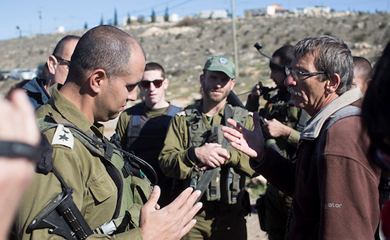
A Ta’ayush activist confronts Israeli soldiers during a direct action with Palestinian activists in the South Hebron Hills, 17 January 2016.
When Israeli Ta’ayush activists assembled for direct action in the South Hebron Hills on 9 January 2016, a core member of the group rose to speak about the latest developments within their anti-occupation group and affiliated organizations. The tone of his voice was very grave. It had just been revealed that over the course of many months, a right-wing, settler-backed organization called Ad Kan had been planting infiltrators into different human rights organizations to spy on and record activities with hidden cameras, in an attempt to acquire any kind of evidence that could be used against them. Targets of this operation included Breaking the Silence, Anarchists Against the Wall, and Ta’ayush. About a year earlier, a mole from Ad Kan had posed as a Ta’ayush activist over the course of several months, had recorded episodes with a hidden camera, and had recently provided a ready-made “reportage” full of decontextualized statements and untruths to a major Israeli investigative television program. One member of the group, Ezra Nawi, in particular, had been subject of the fabricated “investigation”, which was aired on prime-time television.
One activist described the infiltration as part of the larger attempt by the Israeli State to damage the human rights and anti-occupation scene. Guy commented that the Israeli State was treating radical leftists as a “gang of criminals”. In the week following the television broadcast, Ezra, and shortly afterwards Guy and Nasser, were arrested on accusations of manslaughter and connecting with “foreign agents” (here the courts were referring to officials from the Palestinian Authority) and denied contact with their attorneys as their arrests were placed under gag order. They were eventually released, after more than a week, with no charges pressed. For Guy, it was clear that the arrests were entirely political, with the purpose of undermining the activities against the “crimes and criminals of the occupation” and for human rights in Occupied Palestine.
Watch Guy speak about the arrests and related developments here:

Ezra Nawi (left) and Guy Butavia (right) at the Jerusalem Magistrate Court
The infiltration and the arrests of the three activists had significant repercussions on the activism as well as the private lives of Israeli anti-occupation and human rights activists and reverberated in the activist circles. Guy particularly underlined that amidst an atmosphere of distrust and paranoia, people are afraid to speak, fear being spied on, and do not know who they can trust. Even though the incidents did not surprise most activists, given what they perceive as the incessant deterioration of state policies and radicalization of right-wing actors, the attempt at delegitimizing and criminalizing human rights defenders and anti-occupation activists reached an unprecedented level in their eyes.
Omnipresent Power
Describing his arrest to GICJ, Guy explained that Israeli police came to his house, stating that they had search orders from the court, “so they searched the entire place and also took laptops, hard disks, cameras, a lot of papers, a lot of equipment. And then they took me with them”. During interrogation, the activists were subjected to torture methods. Apart from having informants follow his every step and having his body searched by detainees, Guy experienced psychological and physical violence.
After their release, Guy and Ezra were banned from the West Bank for an additional two weeks, prohibited from contacting one another for 60 days and from contacting their good friend and co-activist Nasser for three months. For Guy, not being able to connect with Nasser was the hardest part of his arrest, as they usually talk every day on the phone as friends and partners, or are active on the ground together. This not only impeded their work but also severely impacted their mental wellbeing.

Solidarity protest for arrested Ta’ayush activists, West Jerusalem, 21 January 2016
After his release from prison and detention from the South Hebron Hills, Guy joined Ta’ayush’s direct action again. While they were accompanying a Palestinian shepherd in Zanota, he shared with a GICJ member that he and his friends experienced their arrests as traumatic and lived instances of psychological warfare. After a moment of resonating silence, he added that Ezra is not feeling very well and seems to have carried away more severe psychological consequences. Guy explained that it scares him that Israeli law is so flexible that anyone could be arrested at any moment, for arbitrary reasons. He added that Israeli law’s arbitrariness is strategic, and is directed against anyone considered enemy of the state. Guy often faces derogatory comments by settlers who know him by name, and faces insults by Jewish Israelis on his internet pages. Also soldiers and police know him. Therefore, life and his activism have become “harder and more dangerous”. As a consequence, Guy feels confronted with a radicalized rightist society and a state apparatus run by right-wing actors. Those channels that used to be accessible before, when activists needed to appeal to the court to regain Palestinian land or persecute settlers who committed crimes, have become “the state’s arms” – accomplices of the occupying system. Resisting this seemingly expanding system is thus becoming increasingly difficult.
During a meeting with a GICJ member, Guy placed his phone between books on the shelf above his head. When the member asked whether he would not forget his phone there, he murmured that he is used to it and does so because “they might be listening to [him]”. Branded a criminal, the state infiltrates into his private life. Under the invocation of the activists as national security threats, the Israeli State retains authority over “unprecedented forms of covert and overt surveillance that bleed into the world of activist protest, their homes, workplaces, and online activities” (Urla, & Helepololei, 2014, p.441). The government and its various ministries might soon employ the monitoring system “Buzzilla” to surveille online activities by specific – in particular politically dissident – individuals, as reported on Haaretz on 29 March 2017.
Conclusion
The real and deeply felt omnipresence of the Israeli State leaves scars in the Palestinian and Israeli activists’ consciousness and threatens their lives, safety and wellbeing. The State is an ever-present and malevolent power tracking their every step, ready to claw at them with one of its many arms – to harass, arrest, and attack them. The criminalization of legitimate and peaceful political expression and assembly, which is translated into laws and decrees, undermines claims by Israel of representing “the only democracy in the Middle East” and subjects anyone opposing its illegal activities and inhumane actions to persecution.
For offering invaluable analysis and advocacy for human rights and for protesting and opposing illegal and inhumane actions by the Israeli State, the courageous Palestinian and Israeli human rights defenders face repeated violations of their protected fundamental freedoms. The targeting by the government and Israeli right-wing groups of those actors that dare to stand up for human rights and democratic values in an effort to silence them further entrenches the occupation and places in jeopardy the enjoyment of human rights for everyone in the region.
Recommendations
Shattering the manifold pillars of the occupying system would not only finally guarantee Palestinians their inalienable rights but would end all kinds of violations and also liberate Israelis. The system of occupation and apartheid – one that negates humanity, erodes the rule of law, scorns international commitments, and persecutes defenders of fundamental rights – must be disassembled to give way to real democracy and peace in the region for the benefit of all citizens. We therefore recommend to the United Nations and the relevant UN human rights bodies to take all necessary measure to ensure that Israel, the Occupying Power,
• Comply with the rights and obligations contained in the Declaration on Human Rights Defenders;
• Fully respect the fundamental freedoms of assembly, association, expression and movement in occupied Palestine;
• Cease and rescind its anti-democratic and restrictive practices and legislation targeting human rights defenders, such as the Boycott Prohibition Law and the Budget Foundations Law, and guarantee the safety and freedom of expression of human rights defenders;
• End the use of the criminal, legal and security tools to obstruct the legitimate work of human rights defenders, including the use of arbitrary arrests and detentions, and ensure fair and speedy trials for any human rights defenders charged with an offence;
• Prevent incitement and attacks against the work of human rights defenders, thoroughly investigate violations, and bring perpetrators to justice;
• Take all needed steps to manifest respect for the work of human rights defenders in the region until the end of occupation.
• Report all cases of violations against human rights defenders in Palestine and Israel to the Human Rights Council and the General Assembly to take the necessary action.
Footnotes:
Committee on the Exercise of the Inalienable Rights of the Palestinian People (CEIRPP) (1997). The Status of Jerusalem. United Nations, New York.
Urla, J., & Helepololei, J. (2014). The Ethnography of Resistance Then and Now: On Thickness and Activist Engagement in the Twenty-First Century. History and Anthropology, 25(4). 431-451, DOI: 10.1080/02757206.2014.930456
The Full Report can be read online or downloaded.
GICJ Urgent Appeals on Palestine: GICJ Side-Events and oral statements on Palestine: Human Rights Council - 30th regular session (14 September - 2 October 2015) Human Rights Council - 29th regular session (15 June - 3 July 2015) Human Rights Council - 21st special session on the human rights situation in the Occupied Palestinian Territory, including East Jerusalem (23 July 2014) Human Rights Council - 26th regular session (10 - 27 June 2014): Human Rights Council - 25th regular session (3 - 28 March 2014): Human Rights Council - 24th regular session (9 - 27 September 2013): Human Rights Council - 23rd regular session (27 May - 14 June 2013):GICJ Activities on the Human Rights situation in Palestine and other occupied Arab territories




